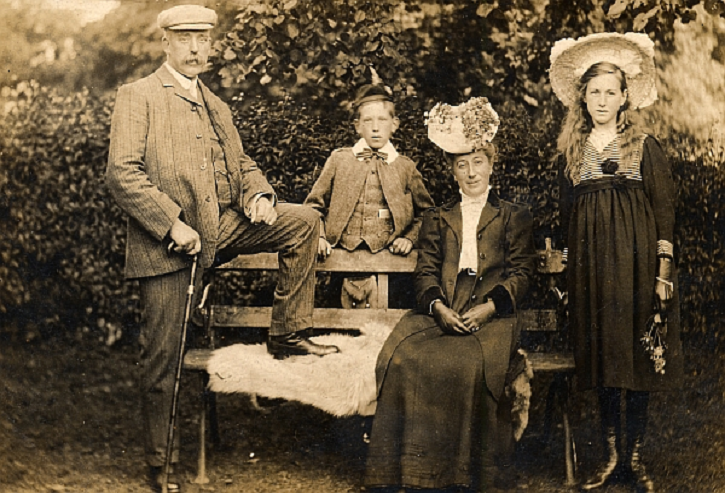How Are Your Investments Doing Lately? Receive A Free, No-Obligation 2nd Opinion On Your Investment Portfolio > This Webinar zeroes in on Technical Analysis...
Keeping focused on our New Year’s resolutions
Keeping focused on our New Year’s resolutions
featuring the Aesop fable, “The Dog and His Reflection.”
As you know, this is a time of year when many people make New Year’s resolutions. Lose weight, stop smoking, save more, learn a new skill, get more sleep, visit a new place, get finances in order, etc. You name it, chances are, someone has resolved to do it.
As financial advisors, people often come to us for help with any financial resolutions they have – or resolutions that require some change in their financial situation to achieve. But often, people come only after they have tried and failed to keep those same resolutions on their own.
This got us thinking: Why are New Year’s resolutions so hard to keep? In most cases, our resolutions are good for us. We want to do them. So why aren’t they easier?
There are many reasons for this, but one of the most important can be best explained by Aesop’s classic fable about…
The Dog and His Reflection
It happened that a Dog, after much hunger and long labor, had finally procured for himself a chunk of meat, and was carrying it home in his mouth to eat in peace. On his way home, the Dog had to cross a fallen tree trunk lying across a running brook. As he crossed, he looked down and saw his own reflection in the water beneath. Thinking it was another dog with an equally large piece of meat, he made up his mind to have that also. So, he snapped at the reflection in the water. But as he opened his mouth, his own meat slipped out, fell into the brook, and was never seen by the Dog again.
While some have interpreted this fable to be a warning against greed, we look at it a little differently. Despite being halfway to his goal – enjoying a nice meal – the Dog became distracted by a different goal, and in pursuing that, lost sight of his own.
In our experience, this happens to most of us every year. We set a goal we want to achieve, something we truly care about. But it takes time to accomplish our resolutions, and it’s very easy to get distracted by the newest, shiniest things. For example, imagine someone resolves to save $200 per week, so that they can finally take that trip to the Caribbean they’ve always dreamed of.
But after doing this for three months, they see another person enjoying the latest iPhone that came out, so they decide to go for that instead. After all, the Caribbean will always be there. So, they spend all the money they’ve saved – and suddenly, they’ve sabotaged their own resolution.
This happens on a larger scale, too. we’ve seen people who dream of a retirement spent in the sun…only to go chasing shadows instead. We’ve seen people with grand plans to start their own business one day…only to spend their time watching television.
Of course, there’s nothing wrong with buying a new iPhone or relaxing in front of the TV. But to truly change our lives for the better, we must learn discipline. We must hold ourselves accountable.
We must keep our eye on what’s truly important, and not be distracted by reflections.
There are several ways we can do that. Here are a few we’ve found to be especially helpful:
- Be specific with your resolutions. People who set specific goals are more likely to achieve them. For example, instead of resolving to save money, resolve to save $200 per week.
- Put it in writing. Write down your resolutions and post them in a place where you will see them every day. This will help remind you of what you’re working towards, so you won’t end up like the Dog in the fable.
- Set realistic goals. Set goals that are within your reach, and don’t try to take on too much at once. Be mindful of your finances and schedule. Account for the fact that sometimes, you need to kick back and relax or spend money on a whim. In addition, take your time. There’s no prize for finishing first, and anyway, to quote another one of Aesop’s fables, slow and steady wins the race.
- Develop a plan. This is so important. Create a timeline with steps toward your goal. Set deadlines for each and cross them off as you go. This will help you generate both the momentum and the motivation you need to continue.
- Ask for help. Whether it’s with a financial professional or a life coach, if you find yourself struggling to reach your goals, don’t think you need to do it alone! Find someone who can help keep you focused and accountable.
- Reward yourself. Acknowledge even the smallest of achievements. Keeping resolutions is hard work, and you should be proud of everything you accomplish!
Regardless of what you do, always remember The Dog and His Reflection. It can make all the difference.
Good luck, and have a wonderful year!
Are you looking for a financial advisor? Do you feel confident about your retirement account decisions? Business owner looking for a company 401K plan administrator? Or an athlete or high net worth individual needing long term financial planning advice? Research Financial Strategies can help. We are here to help you design a financial strategy that is molded specifically for you. One that changes as your life changes. Financial investments to help you live worry-free now and in the future.
In our experience, we’ve found that the most successful solutions begin by asking the right questions.
We gain a broader perspective of your goals and the future you wish to create
Today is a Good Day to Start Your Financial Plan
1. We Listen
Our focus is on your life and priorities. Not just your portfolio. That’s why we start by listening and learning about you. Each individual client has different needs and concerns that need to be addressed. We carefully listen to those concerns. We will gain important information that will help us to best serve our clients and help protect their financial futures.
2. Plan
Together we will work to implement the plan that was developed for you. We will keep you constantly updated on what is happening and evolve our plan as your life happens.
Above all, our advisors want to help you meet your goals, even if that means helping you find out what your goals are.
3. We Take Care Of The Rest
We are here for you whenever you need us. Call your Research Financial Strategies Financial Advisor at any time, for any reason. You will always have access to the guidance you need whether it is high tech, high touch or a combination of the two. Your personal Financial Advisor will help you figure out how to pay for life’s great adventures!
Ready to Make a Change?
With an “education first” approach, Research Financial Strategies ensures that our clients understand how their money is being invested, and we guide the development of financial plans that help them achieve their goals for personal wealth and retirement security.
How Can We Help?
Annuities, Potomac, Annuity, Bethesda, Annuity Advisor, Rockville,







